
Peace
The gospel claims something bold: God offers real peace. Peace with Him, peace inside yourself, and peace with other people. But that peace isn’t automatic…
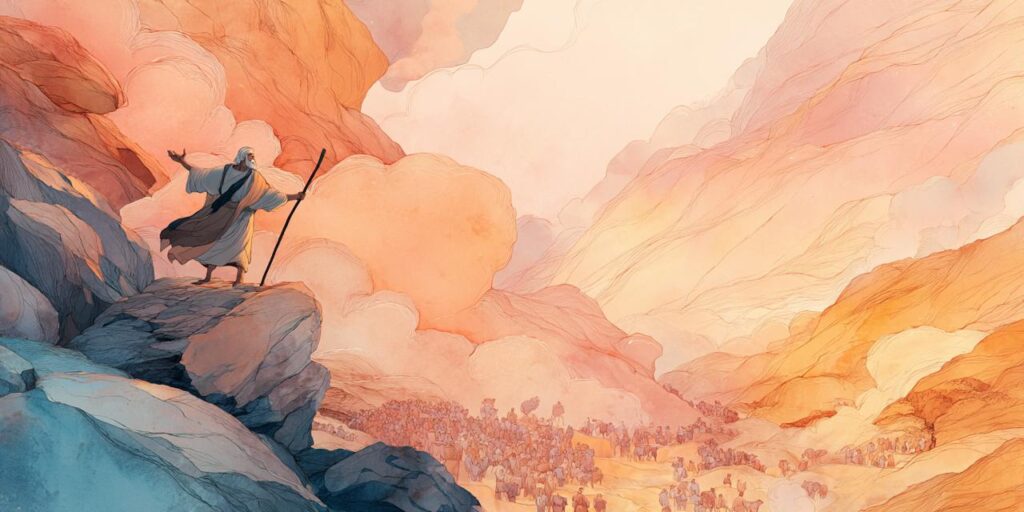
All the congregation of the people of Israel moved on from the wilderness of Sin by stages, according to the commandment of the Lord, and camped at Rephidim, but there was no water for the people to drink. Therefore the people quarreled with Moses and said, “Give us water to drink.” And Moses said to them, “Why do you quarrel with me? Why do you test the Lord?” But the people thirsted there for water, and the people grumbled against Moses and said, “Why did you bring us up out of Egypt, to kill us and our children and our livestock with thirst?” So Moses cried to the Lord, “What shall I do with this people? They are almost ready to stone me.” And the Lord said to Moses, “Pass on before the people, taking with you some of the elders of Israel, and take in your hand the staff with which you struck the Nile, and go. Behold, I will stand before you there on the rock at Horeb, and you shall strike the rock, and water shall come out of it, and the people will drink.” And Moses did so, in the sight of the elders of Israel. And he called the name of the place Massah and Meribah, because of the quarreling of the people of Israel, and because they tested the Lord by saying, “Is the Lord among us or not?”
Exodus 17:1-7
The story in Exodus 17:1–7 is more than an ancient account—it’s a living lesson in trust. Israel had been freed from Egypt, not by chance but by God’s mighty hand. They had seen plagues devastate their oppressors, the Red Sea part before them, and their enemies swallowed by the waves. They were free, at last.
But freedom brought a new question: What will you do with it?
For Israel, the answer would be forged in the desert—a place where needs were great, comfort was scarce, and every step required faith.
Egypt had been a land of oppression, but it was also predictable. Food, water, and shelter were harshly provided, but they were there. Now the people were in an unpredictable wilderness.
God used this journey to teach His people to trust Him—not only when seas parted and enemies fell, but also when thirst and hunger gnawed at them. The first challenges came quickly: bitter water at Marah, hunger in the wilderness, and now, no water at all.
Each crisis brought the same choice:
Complain and blame, as the people often did, focusing anger on Moses.
Seek God’s direction, as Moses did—bringing the problem to the Lord.
Too often, Israel chose the first option. They grumbled, idealized their slavery in Egypt, and accused Moses of leading them into the desert to die. It’s a sobering mirror for us: when life gets hard, do we default to complaint or to prayer?
At Marah, God made bitter water sweet through a branch thrown into the water. Later, He sent manna—mysterious bread from heaven—and quail to feed them. His instructions often made little human sense, but they revealed a deeper truth: the size of the branch didn’t matter, the size of the God did.
In Exodus 17, the situation was desperate again. No water. The people’s anger burned. Moses prayed, and God gave a command that must have seemed absurd: “Strike the rock.” Yet when Moses obeyed, water gushed forth—enough for all.
That rock in the desert was more than a source of water—it was a picture of Christ, the solid foundation from which living water flows.
The lesson was clear:
God’s presence is not proven by perfect circumstances.
Faith grows when we trust Him in the impossible.
Our role is obedience; His role is provision.
Israel’s journey was filled with tests—opportunities to deepen trust. Sadly, they often failed, hesitating to enter the Promised Land because they feared the obstacles more than they trusted God’s promise. Caleb and Joshua stood out as exceptions, urging, “If God said it, we can do it!”
For us, the tests may not involve desert thirst, but they will challenge our trust just the same—financial struggles, health crises, broken relationships, or uncertain futures. Each one asks the same question: Is God with us or not?
Trust isn’t built in comfort; it’s forged in trials. Like a pilot trained in a simulator before flying, God allows us to face smaller tests so we are ready for bigger ones.
We can choose to be like Israel—grumbling and looking back—or like Moses, who brought every problem to God. The path forward will have deserts, but also springs of refreshment along the way.
Our job is not to make this world our home, but to keep moving toward the one God has promised.
When life feels dry and the need is urgent, remember: the same God who brought water from a rock can meet your need in ways you cannot imagine. The question is—when the test comes—will we trust Him enough to obey?

The gospel claims something bold: God offers real peace. Peace with Him, peace inside yourself, and peace with other people. But that peace isn’t automatic…

Advent starts by asking us to slow down and look past the distractions. Every culture wraps Christmas in its own extras—traditions, shopping, decorations, sentimental ideas.
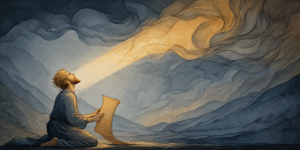
After Paul left Galatia, other teachers came. They questioned Paul’s authority and offered the Galatians a far more “comfortable” message…
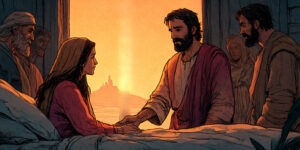
Jesus leaves the synagogue in Capernaum and steps into a home. Simon Peter’s mother-in-law lies with a high fever.
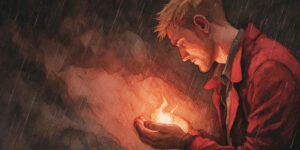
Paul writes to a church he has never visited, yet he sounds like a pastor who knows them well: he encourages, challenges, and points every road back to Christ…
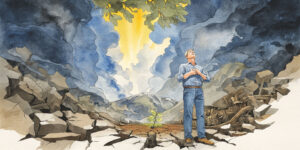
Biblical hope isn’t wishful thinking or daydreams. It is a confident expectation anchored in what God has already done in Christ and what he has promised to complete…